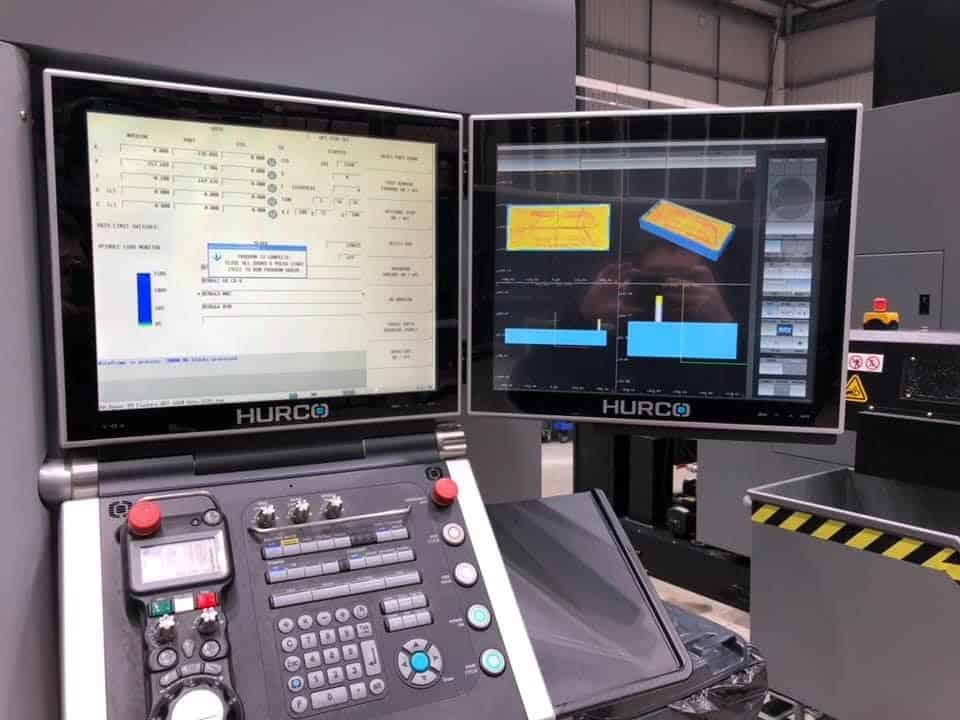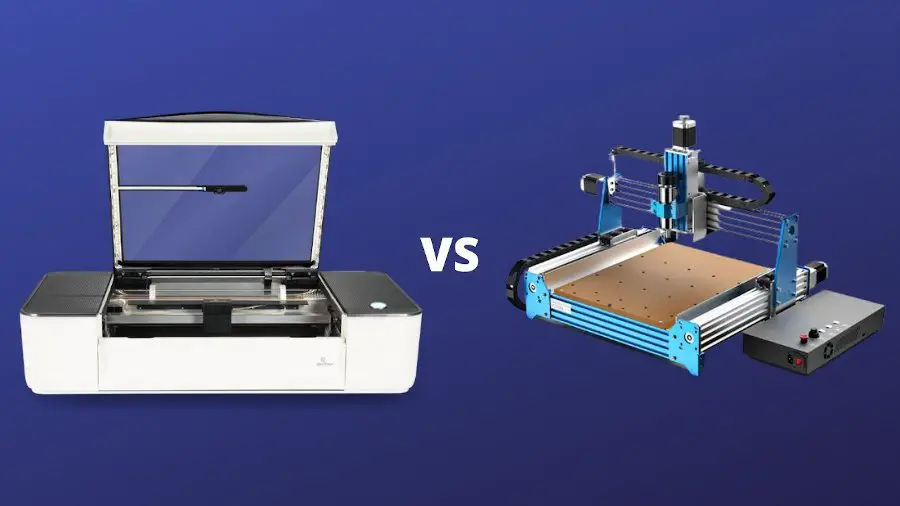Table of Contents
Are you interested in pursuing a career as a CNC programmer? This field offers a wide range of opportunities for individuals who are detail-oriented, analytical, and have a passion for technology. With the increasing demand for CNC programmers in various industries, now is the perfect time to start your journey towards this exciting career path.
So, how do you become a CNC programmer? While there is no one-size-fits-all answer, there are certain steps you can take to increase your chances of success. From acquiring the necessary training and skills to gaining practical experience, this guide will provide you with valuable insights and tips to help you achieve your goals. Let’s dive in!
- Get a high school diploma or a GED certificate.
- Gain experience in the manufacturing industry.
- Enroll in a CNC programming certificate or degree program.
- Learn computer-aided design (CAD) and computer-aided manufacturing (CAM) software.
- Get on-the-job training, apprenticeship, or an internship in a CNC programming or machining position.
- Obtain certification from organizations like the National Institute for Metalworking Skills (NIMS) or the American Society of Mechanical Engineers (ASME).
- Continue learning and updating your skills to stay competitive in the field.
How to Become a CNC Programmer?
If you have an interest in technology, programming, and manufacturing, then becoming a CNC programmer can be a fulfilling career choice. CNC (Computer Numerical Control) programming is an essential part of modern manufacturing, and skilled CNC programmers are in high demand. In this article, we will guide you through the steps required to become a CNC programmer.
1. Education and Training
To become a CNC programmer, you need to have a solid understanding of mathematics, computer programming, and manufacturing processes. A high school diploma or equivalent is typically required to pursue this career. However, many employers prefer candidates with some college education or a technical degree in manufacturing, engineering, or computer science.
Formal training in CNC programming is also essential. You can obtain this training through community colleges, vocational schools, or specialized training centers. These programs teach you the fundamentals of CNC programming, including reading blueprints, G-code programming, machine setup, and operation.
Additionally, you can gain practical experience through internships, apprenticeships, or entry-level jobs in the manufacturing industry. This experience can help you develop the necessary skills to become a competent CNC programmer.
2. Understanding CNC Machines
CNC machines are the backbone of modern manufacturing, and understanding how they work is crucial for a CNC programmer. A CNC machine is a computer-controlled machine tool that can perform complex operations with high precision and accuracy. It uses software and G-code programming to control the movement of the cutting tool and the workpiece.
To become a CNC programmer, you need to have a good understanding of the different types of CNC machines, their capabilities, and limitations. You should also be familiar with the various components of a CNC machine, such as the spindle, tool changer, coolant system, and control panel.
3. Mastering G-Code Programming
G-code programming is the language used to control CNC machines. It is a series of commands that tell the machine what to do, such as move the cutting tool, change the spindle speed, and turn on the coolant system. As a CNC programmer, you need to be proficient in G-code programming to create efficient and accurate programs.
There are many resources available to learn G-code programming, including online courses, books, and tutorials. You can also practice your programming skills using simulation software or virtual CNC machines. It is essential to keep up-to-date with the latest advancements in G-code programming to stay competitive in the industry.
4. Reading Blueprints and Schematics
Blueprints and schematics are the visual representation of a product or component that needs to be manufactured. As a CNC programmer, you need to be able to read and interpret these documents to create accurate and efficient programs.
Blueprint reading involves understanding the different types of lines, symbols, and annotations used in the drawing. You also need to be able to identify the dimensions, tolerances, and material specifications.
Schematic reading involves understanding the electrical and hydraulic diagrams used in CNC machines. You need to be able to read and interpret these diagrams to troubleshoot problems and make modifications to the machine.
5. Knowledge of Cutting Tools and Materials
Cutting tools and materials are essential components of CNC machining. As a CNC programmer, you need to have a good understanding of the different types of cutting tools and materials used in manufacturing. This knowledge helps you choose the appropriate tools and settings for specific applications.
You should also be familiar with the different types of tool holders, such as collets, chucks, and hydraulic clamps. Understanding the properties of different materials, such as metals, plastics, and composites, is also important for selecting the correct cutting parameters.
6. Quality Control and Inspection
Quality control and inspection are critical aspects of CNC machining. As a CNC programmer, you need to ensure that the finished product meets the required specifications and tolerances. This involves using various inspection tools, such as micrometers, calipers, and height gauges.
You also need to be familiar with statistical process control (SPC) methods and quality assurance procedures. These techniques help you identify and correct any defects or issues in the manufacturing process.
7. Continuous Learning and Improvement
The field of CNC programming is constantly evolving, with new technologies and techniques emerging all the time. To stay competitive in the industry, you need to remain up-to-date with the latest advancements in CNC programming.
Continuous learning and improvement involve attending training sessions, conferences, and seminars. You can also join professional organizations, such as the National Institute for Metalworking Skills (NIMS) or the Society of Manufacturing Engineers (SME). These organizations provide networking opportunities and access to industry news and trends.
8. Benefits of Becoming a CNC Programmer
Becoming a CNC programmer has many benefits, including job security, high demand, and competitive pay. CNC programming is a specialized skill that requires a unique combination of technical knowledge, creativity, and problem-solving skills. This makes CNC programmers in high demand across industries such as aerospace, automotive, and medical devices.
Furthermore, CNC programming offers opportunities for career advancement, such as becoming a team leader or supervisor. You can also specialize in a specific area of CNC programming, such as robotics or automation.
9. CNC Programming Vs. Manual Machining
CNC programming and manual machining are two different approaches to manufacturing. Manual machining involves using manual tools, such as lathes, mills, and grinders, to fabricate the product. CNC programming, on the other hand, involves using computer-controlled machines to automate the manufacturing process.
CNC programming offers many advantages over manual machining, such as higher precision, repeatability, and faster production times. CNC programming also reduces the risk of human error and allows for more complex and intricate designs.
10. Conclusion
Becoming a CNC programmer requires a combination of education, training, and practical experience. To excel in this field, you need to have a solid understanding of mathematics, computer programming, and manufacturing processes. You also need to be proficient in G-code programming, blueprint reading, and quality control procedures.
Continuous learning and improvement are essential to stay up-to-date with the latest advancements in CNC programming. Becoming a CNC programmer offers many benefits, including job security, high demand, and competitive pay. It also allows for opportunities for career advancement and specialization.
Frequently Asked Questions
What is a CNC programmer?
A CNC programmer is a professional who operates computer numerical control (CNC) machines and creates programs for them. These machines are used in manufacturing to create precise and complex parts, and the CNC programmer is responsible for ensuring that the machine follows the correct instructions to produce the desired outcome.
To become a CNC programmer, you typically need to have a background in engineering or a related field, as well as experience working with CNC machines. You may also need to complete specialized training or certification programs to acquire the necessary skills and knowledge.
What qualifications do I need to become a CNC programmer?
To become a CNC programmer, you generally need to have a high school diploma or equivalent, as well as a background in math, science, and engineering. Many employers also prefer candidates with a degree or certificate in mechanical engineering or a related field.
In addition to formal education, you will need to have experience working with CNC machines and programming languages such as G-code. You may be able to gain this experience through an apprenticeship or on-the-job training, or by completing specialized training programs or certification courses.
What skills do I need to become a successful CNC programmer?
To become a successful CNC programmer, you will need to have strong technical skills, including a deep understanding of CNC machines and programming languages. You will also need to be able to read and interpret technical drawings and blueprints, and to have exceptional attention to detail and problem-solving skills.
In addition to technical skills, you will need to have excellent communication and teamwork skills, as CNC programming often involves working closely with other engineers, technicians, and production workers. You should also be comfortable working in a fast-paced, deadline-driven environment, and be able to adapt to changing priorities and requirements.
What training or certification programs are available for CNC programmers?
There are a variety of training and certification programs available for CNC programmers, including courses offered by community colleges, vocational schools, and trade organizations. Some programs focus on specific types of CNC machines or programming languages, while others provide a more general overview of CNC programming principles.
Certification programs are also available, and can be a valuable credential for CNC programmers seeking to demonstrate their expertise and knowledge. Some of the most widely recognized certification programs include those offered by the National Institute for Metalworking Skills (NIMS) and the Manufacturing Skill Standards Council (MSSC).
What are the career prospects for CNC programmers?
The career prospects for CNC programmers are generally positive, as the demand for skilled workers in manufacturing and other industries continues to grow. CNC programmers can work in a variety of settings, including machine shops, factories, and research facilities, and may specialize in specific types of machines or applications.
With experience and additional training, CNC programmers can advance to supervisory or managerial roles, or may choose to specialize in areas such as quality control, process engineering, or product development. Overall, a career as a CNC programmer can be rewarding and challenging, with plenty of opportunities for growth and advancement.
In conclusion, becoming a CNC programmer requires a combination of formal education, technical skills, and experience. It is essential to have a strong foundation in math and computer programming, as well as a deep understanding of computer-aided design software.
Additionally, seeking out apprenticeships, internships, and other hands-on experiences can provide invaluable knowledge and help build a strong professional network. Staying up-to-date on industry developments and technological advancements is also crucial in this rapidly evolving field.
Overall, with dedication and hard work, anyone can become a skilled CNC programmer and enjoy a rewarding career in the manufacturing industry. So, if you are passionate about technology and problem-solving, pursuing a career in CNC programming may be the right choice for you.
Request a quote today!
[contact-form-7 id="1578" title="Contact form"]
Please compress the file into a ZIP or RAR file before uploading. Alternatively, send through your RFQ by email.
enquires@unitymanufacture.com





